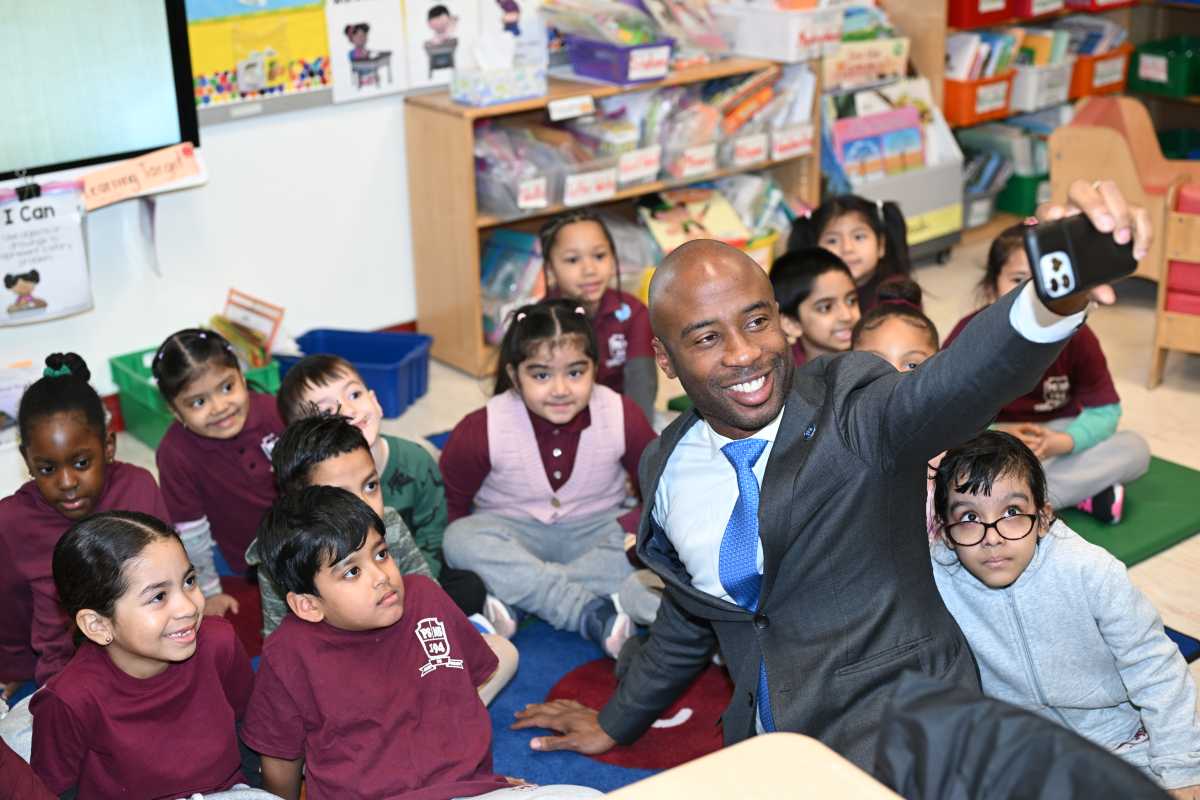
It’s the week before Labor Day, and three floors above the bustle of Delancey Street, Innovate Manhattan Charter School teachers are rushing through the middle school’s corridors, practicing their placements for each period during the approaching fall semester.
“Our teachers are getting into the mindset of 12-year-olds,” explains Dr. David Penberg, Innovate’s Head of School.
“We want to maximize this space so that it is as purposeful as possible.”
Penberg, who, for over 30 years, has worn many hats in the global education world—as a headmaster and a leader in professional development at schools in Spain and Mexico—joined Innovate in January, along with the associate head of school, Peter Katcher.
“Our arrival has been just at the right time,” Penberg says.
“It’s been lots of work, but really positive energy work because there is really unique potential in this kind of a school.”
Innovate’s home on the third floor of a Lower East Side building—which last year accommodated 168 students in grades 6-8—is modern and open, with glass-walled classrooms and large windows overlooking Delancey and Forsyth Streets. The teachers’ “rehearsal” of their many period-to-period positions—as instructors, coaches, and mentors—is representative of the school’s dynamic role as a pioneer in learning philosophy: Innovate is the first school in North America to utilize the Swedish Kunskapsskolan model of education. Kunskapsskolan (or KED) allows students to move through course materials at their own pace, while receiving individual guidance from a teacher. In addition to teaching their regular courses, teachers also serve as students’ personal coaches, and hold one-on-one weekly meetings to discuss student progress and strategies for goal achievement. Students are responsible for maintaining a logbook to track developments on long-term goals and shorter-term assignments.
Social studies teacher James May, who has worked at Innovate since its inception four years ago, elaborates on Kunskapsskolan’s coaching method. “We lead students toward a metacognitive level where they’re able to reflect on whether or not they’ve reached their goals, and what strategies have helped them or hurt them on that path,” he says. For more frequent updates, parents can log on to an online portal, where teachers will regularly upload comments on students’ formative assessments.
“That’s part of the idea of individualized education,” May says. “It’s not placing [a student] in the medium math class or the high math class, it’s making sure that for each kid we understand how they think about their own learning, and help them articulate it.”
Online access to course materials through the Kunskapsskulan curriculum portal allows for this flexibility in students’ learning. Students can modify assignments to fit their interests and goals, as long as they are demonstrating proficiency. At Innovate, the curriculum includes standard courses such as math, literature, science, social studies, language—this year, the school is introducing Mandarin—as well as physical education. Kunskapsskolan focuses on qualitative, rather than quantitative, assessment of students in these subjects.
“This style of learning is about mastery,” Penberg explains. “You have to demonstrate you’ve mastered something—it could be [through] a monologue you wrote, or an essay, or a letter to the editor, or a pop quiz.”
Innovate has also recently begun expanding its already diverse extracurricular offerings.
This year, Innovate—because of its after-school partnership with the Educational Alliance—is providing after-school programs Monday-Friday, including Steam Saturdays, a science, engineering, and technology program associated with Pace University that will run for 36 weeks. Activities to connect Innovate to its international networks will begin with the students and teachers. The school is piloting a global student council across three schools in three different cities and countries, and will be sending KED teachers abroad for training this winter. Innovate has also introduced Mandarin as a second language, and music, the school’s third language, is returning to Innovate this year. Innovate is also introducing movie nights, beginning with the Marx brothers. And for a summer residency program, they plan to send 20 Innovators for a two week science and arts academy in Sweden this June.
This is the year of goals.
“Five years from now, we’ll be a K-8 school with a booming program in the sciences, a digital journal that goes to 50,000 kids, a summer program that sends kids to Sweden for two weeks, and a great arts program in the summer,” Penberg says.
For more information, visit innovatemanhattancharterschool.org.












